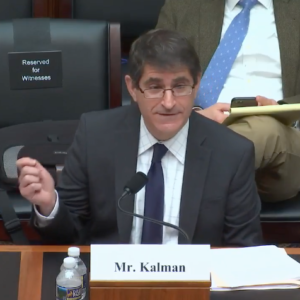
Testimony to House Financial Services Committee on Implementation of FinCEN’s CDD Rule
Gary Kalman, the executive director of the Financial Accountability and Corporate Transparency (FACT) Coalition, testified in front of the U.S. House of Representatives Committee on Financial Services Subcommittee on Financial Institutions and Consumer Credit on Friday, April 27, 2018 at a hearing regarding the implementation of the Financial Crimes Enforcement Network’s (FinCEN) rule on Customer Due Diligence Requirements for Financial Institutions.





